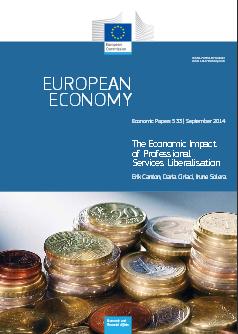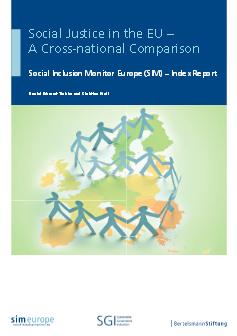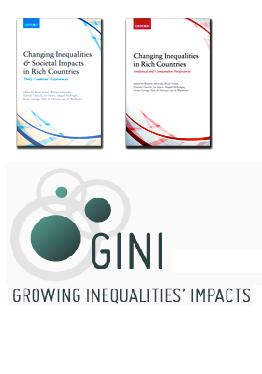Cortes, M., Jaimovich, N., Nekarda, J. C. & Siu, H. (2014) “The who and how of disappearing routine jobs“, VoxEU Organisation, 02 Οκτωβρίου. As routine tasks are increasingly automated, middle-wage jobs are becoming rarer. This column documents the changes in labour-market dynamics behind polarisation, and investigates which workers are affected by it. Flows into middle-wage routine jobs are declining (rather than flows out increasing). Interestingly, routine cognitive workers – …Read More
The Economic Impact of Professional Services Liberalisation
Canton, E., Ciriaci, D. & Solera, I. (2014) “The Economic Impact of Professional Services Liberalisation“, European Economy. Economic Papers. 533. Σεπτέμβριος 2014 Competition in professional services is, in some occasions, hindered by excessive regulation. This may constrain business dynamics (entry and exit of firms) and create inefficiencies and excessive rents. To improve market performance in those professional services generally regulated, several EU countries have reduced regulatory restrictions regarding the …Read More
Cross-country differences in perceptions of inequality
Niehues, J. (2014) “Cross-country differences in perceptions of inequality“, VoxEU Organisation, 28 Σεπτεμβρίου. Income inequality is high in the US, but the support of social welfare programmes is low. In Europe, income inequality is low and the welfare states are generous. This column argues that this paradox is largely due to perceived inequality. Many Europeans believe that there is high inequality in their countries, justifying the need for redistributive …Read More
Revamping Europe’s Tattered Social Contract
Derviş, Κ. (2014) “Revamping Europe’s Tattered Social Contract“, Brookings Institute, 18 Σεπτεμβρίου. For most of the beginning of 2014, the eurozone seemed to be in a state of recovery – weak and unsteady, but nonetheless real. In April, the International Monetary Fund estimated that overall GDP growth would reach 1.2% this year, with slowly declining unemployment, up from its previous forecast of 1% growth. With the threat of unsustainably high interest …Read More
The European School-to-work Transition and the Crisis
Giuliani, L. & Pastore, F. (2014) “The European School-to-work Transition and the Crisis“, Social Europe Journal, 16 Σεπτεμβρίου. The school-to-work transition is a long, dark tunnel for many young people around the world. However, the problem is not the same everywhere; in Germany, for example, young people have almost the same probability of working as adults, while in the Eastern and Mediterranean EU countries the employment chances of young …Read More
Social imbalance in Europe is increasing
Schraad-Tischler, D. & Kroll, C. (2014) “Social imbalance in Europe is increasing“, Social Inclusion Monitor, Bertelsmann Stiftung, Σεπτέμβριος. First Social Justice Index compares all 28 EU states / In Europe the gap is growing between North and South as well as between young and old / Social division threatens the future viability of the European project / European social strategy needed Europe is making some progress in terms of …Read More
Greece, racism and the church – Your genocide or mine?
“Greece, racism and the church – Your genocide or mine?“, The Economist Blog, 29 Αυγούστου 2014. A long awaited bill whose stated aim is to combat racism has been limping its way through the Greek Parliament, despite several bishops from the national church denouncing it as “catastrophic” while some liberal observers say it does not go far enough. In its latest iteration the bill would: impose fines and a ban on …Read More
Migration states and welfare states: Why is America different from Europe?
Razin, A. & Sadka, E. (2014) “Migration states and welfare states: Why is America different from Europe?“, VoxEU Organisation, 01 Σεπτεμβρίου. European migration exhibits a bias towards low-skilled workers, whereas the US attracts the majority of the world’s skilled migrants. At the same time, the welfare system in Europe is more generous than the one in the US. This column describes an analytical framework that can explain the existence …Read More
The GINI Project, Changing Inequalities and Societal Impacts in Rich Countries – Thirty Countries’ Experiences
Nolan, B., Salverda, W., Checchi, D., Marx, I., McKnight, A., György Tóth, I. & van de Werfhorst, G. H. (Eds.) (2014) “The GINI Project, Changing Inequalities and Societal Impacts in Rich Countries – Thirty Countries’ Experiences“, Project Funded Under the Socio-Economic Sciences & Humanities Theme, 30 Αυγούστου. Aims The GINI Project studies the economic and educational drivers and the social, cultural and political impacts of increasing inequality with novel …Read More
The computerisation of European jobs – who will win and who will lose from the impact of new technology onto old areas of employment?
Bowles, J. (2014) “The computerisation of European jobs – who will win and who will lose from the impact of new technology onto old areas of employment?“, Bruegel Institute, 17 Ιουλίου. Who will win and who will lose from the impact of new technology onto old areas of employment? This is a centuries-old question but new literature, which we apply here to the European case, provides some interesting implications. …Read More







